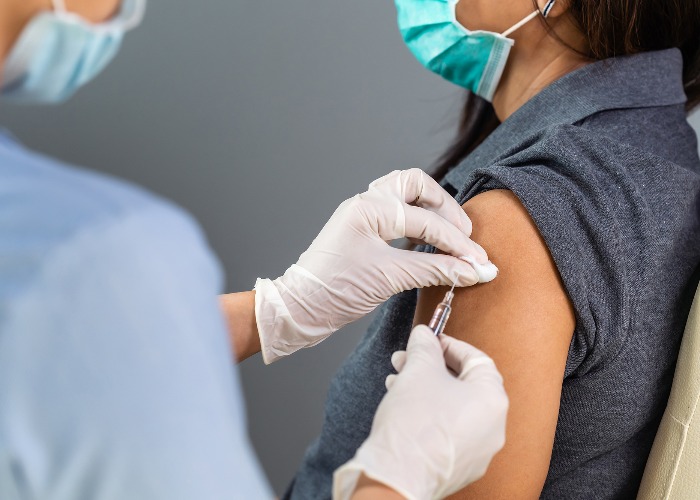‘Side effects of COVID-19 vaccines are temporary, short-lived’
Some Nigerians have not taken the COVID-19 vaccine for fear of side effects. A study on COVID-19 vaccine hesitancy and willingness to pay: Emergent factors from a cross-sectional study in Nigeria revealed that 52.9 participants of the study indicated that reasons for not accepting COVID-19 vaccines are because they are worried about side effects that […]

Some Nigerians have not taken the COVID-19 vaccine for fear of side effects.
A study on COVID-19 vaccine hesitancy and willingness to pay: Emergent factors from a cross-sectional study in Nigeria revealed that 52.9 participants of the study indicated that reasons for not accepting COVID-19 vaccines are because they are worried about side effects that may be associated with the vaccines.
- NIGERIA DAILY: Are South East’s ‘unknown Gunmen’ gradually turning into Boko Haram?
- Many Nigerians facing mental health, not seeking help — Experts
Baru Yakubu, 19, a student said he has not taken the vaccine because he heard people who took it could suffer long-term side effects such as blood clots, infertility, respiratory problems, and disability.
However, medical experts and relevant global and health organisations say the side effects of COVID-19 vaccines are temporary and short-lived. They urge members of the public not to hesitate to get vaccinated.
They say no research so far has confirmed that the vaccines can have long-term negative effects on our health.
Research by UNICEF revealed that minor side effects due to vaccination are possible, but that they do not last long, do not affect human health in the long run and they are extremely rare.
The organisation said vaccines are designed to give you immunity without the dangers of getting the disease, adding that some of the mild-to-moderate side effects you may experience after vaccination include:
- Arm soreness at the injection site
- Mild fever
- Fatigue
- Headaches
- Muscle or joint aches
- Chills
- Diarrhoea
“You can manage any side effects with rest, staying hydrated and taking medication to manage pain and fever, if needed.
“If any symptoms continue for more than a few days then contact your healthcare provider for advice. More serious side effects are extremely rare, but if you experience a more severe reaction, then contact your healthcare provider immediately.”
The Executive Director of the National Primary Healthcare Development Agency (NPHCDA), Dr Faisal Shuaib, has also repeatedly advised Nigerians not to allow the fear of side effects of COVID-19 vaccines to discourage them from taking the jab.
He said Nigeria has not recorded any case of death directly linked to COVID-19 vaccination.
He said: “Cases of mild, moderate and severe reactions that have been recorded are expected from normal vaccination and people who experienced any of these have since recovered and are doing well.
“Therefore, we should not allow the fear of side effects to discourage us from taking the vaccine, as the long-term benefits of getting vaccinated far outweigh the risk of brief side effects.”
The World Health Organisation said the reported side effects of COVID-19 vaccines were generally mild to moderate, and short-lived. “These include high temperature, tiredness, headache, muscle aches, fever, diarrhoea and injection site pain. The chances of any of these side effects after vaccination vary depending on the specific COVID-19 vaccine.
“It is common to experience some mild-to-moderate side effects when receiving vaccinations. This is because your immune system is instructing your body to react in certain ways: it increases blood flow so more immune cells can circulate, and it raises your body temperature in order to kill the virus.
“Mild-to-moderate side effects, like a low-grade fever or muscle aches, are normal and not a cause for alarm: they are signs that the body’s immune system is responding to the vaccine, specifically the antigen (a substance that triggers an immune response), and is gearing up to fight the virus. These side effects usually go away on their own after a few days,” WHO said.
